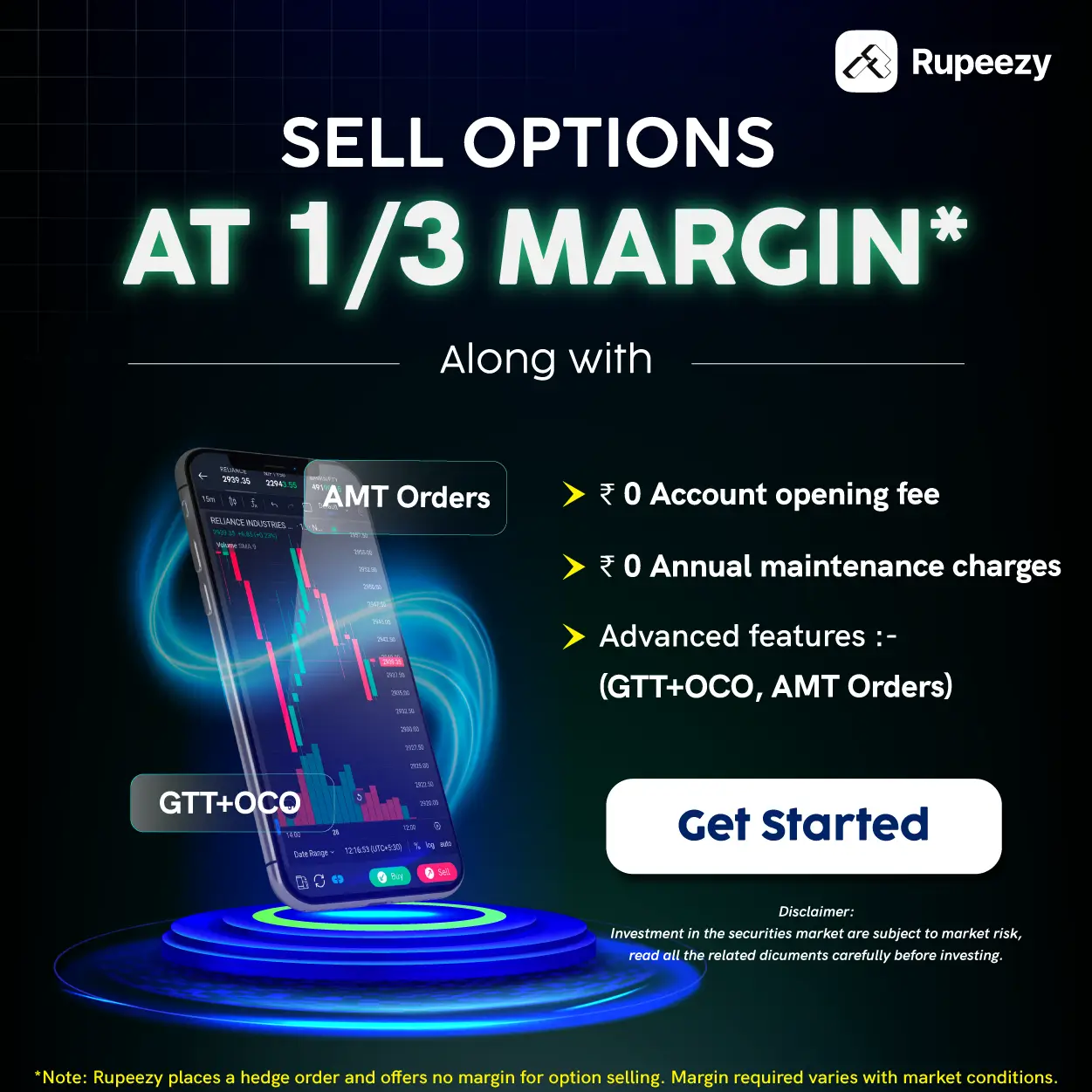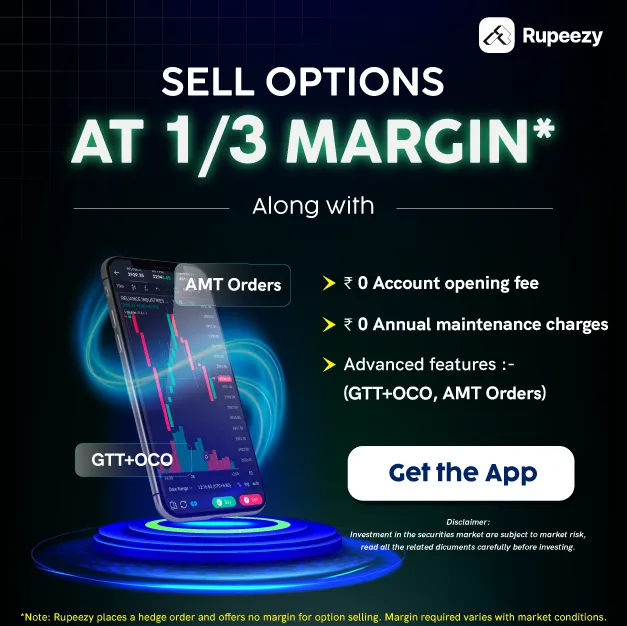Difference Between Futures and Options


00:00 / 00:00
The most common question for those who trade in the stock market is what is the difference between futures and options? Both are important tools of the derivatives market, which are mostly used for trading and hedging. In futures, it is mandatory to complete the deal at the fixed price and date, whereas options only give you rights, not obligations. In this blog, we will understand in detail what is futures and options and “difference between options and futures”, so that trading decisions can be more clear.
What are Futures and Options?
Futures and options are the most commonly used derivatives for those trading in the stock market. They are mainly used for hedging (risk reduction) and speculation (betting on the direction of prices). But there is an important difference between the two.
What are futures?
Futures is a contract in which both the buyer and the seller are required to complete the deal on a fixed date and price. Suppose a farmer locks the price of his crop in advance, so that he is not affected by the change in market price in future. This is what futures work like a binding contract, in which there is no option to back out.
Example: Suppose a trader thinks that the price of an NSE index or a big stock will rise in the coming months. He buys a futures contract of that index or stock today. If the price actually goes up, the trader will make a profit, but if the price goes down, he will have to bear a loss. There is no option to back out in the future; the deal must be completed on the fixed date.
What are options?
In an options contract, the trader gets the right to buy or sell a stock or index at a fixed price, but there is no obligation. That is, if you think that the share of Reliance will rise, then you can buy a call option. If the share really rises, then you will benefit, otherwise your loss will be limited only to the premium amount paid. Understand it like you have reserved a movie ticket if you want to go then go, otherwise you will lose the money for the ticket.
Example: Suppose an investor thinks that the price of an NSE index or a particular stock will rise in the coming weeks. He buys a call option and pays a premium for it. If the price really rises, he can buy it at the fixed price and sell it in the market and make a profit. But if the price does not rise as expected, he will not exercise the option. His only loss will be the premium he paid in the beginning.
Key Difference Between Futures and Options
Both futures and options are important derivatives in stock market trading but their working methods, risks and uses are different. The major differences between them are given in the table below:
Basis | Futures | Options |
Obligation | Both buyer and seller are obligated to complete the contract on the agreed date and price. | The buyer only has the right, not the obligation, to execute the contract. |
Risk | Profit and loss can both be unlimited. | The buyer’s loss is limited only to the premium paid. |
Cost / Upfront Payment | Requires margin deposit, but no premium. | Requires an upfront premium to enter into the contract. |
Profit Potential | Unlimited if the market moves as expected, profits can be very high. | Limited profit depends on the difference between strike price and premium paid |
Settlement Style | Daily mark-to-market settlement adjusts profit and loss. | Settlement happens only on expiry or when the option is exercised. |
Liquidity & Trading Volume | Highly liquid in indices and some major shares. | High trading volume in indices and shares, especially popular among retail traders. |
Flexibility | No flexibility, the contract must be honored. | Flexible the buyer can choose to exercise or let the contract expire. |
Strategy Suitability | Suitable for hedging large positions and directional trading. | Suitable for hedging, risk management, and complex trading strategies (spreads, straddles, etc.). |
When to Use Futures vs Options
Choosing the right instrument in stock market trading is as important as taking the right entry at the right time. Here comes the question: when should one use futures and options?
When are futures better?
Futures are generally suitable for large traders, institutional investors and hedgers.
They are used when one has strong belief in the direction of the price and wants to trade in large volumes.
Futures are considered the best tool for hedging in commodities, currencies and indices.
But the risk is unlimited and the ability to handle margin calls is required.
When are options better?
Options are attractive to most retail investors because they can be traded with less capital.
In this, the buyer's loss is limited only to the premium, so the risk is controlled.
It is good for those who want to avoid downside risk but want to keep the upside potential open.
Small investors in India prefer options more because the entry cost is low and leverage is high.
Difference between Futures and Options Based on Liquidity, Value and Capital
Difference based on Liquidity
Futures contracts are mostly quite liquid in the NSE index and big stocks. That is, the bid-ask spread is low here and deals can be done easily even in large quantities.
Liquidity in options is a bit uneven. Index options are very liquid, but sometimes liquidity is less in individual stock options.
Difference based on value
The value of futures is directly linked to the price of the underlying index or share. That is, if the index goes up by 1%, then futures will also move almost the same.
The value of options is more complex. It depends not only on the underlying price, but also on factors like strike price, time to expiry and volatility. Therefore, understanding options pricing is much more difficult than futures.
Difference based on capital
To trade futures, one has to deposit margin, which can usually be 10%–20% of the contract value. That is, the capital requirement is more than options.
In options, the buyer has to pay only a premium, which is much less than futures. This is why small investors prefer options more.
Pros and Cons of Futures and Options Trading
Pros and Cons of Futures
Pros : There is a lot of liquidity in futures trading, that is, buyers and sellers are always present. These contracts are straightforward and transparent, so they are easy to understand and implement.
Cons : The biggest risk in futures is that there is no limit on losses. In case of margin call, the investor may have to deposit additional money, which can increase financial pressure.
Pros and Cons of Options
Pros : The biggest advantage of options is that the loss is limited, that is, the investor loses only as much as the premium paid. Apart from this, options provide a lot of flexibility for different strategies.
Cons : Options are a bit complex and not every investor can understand them immediately. Also, there is a factor of time decay in them, that is, as the expiry approaches, the value of the option keeps falling.
Trade Futures & Options Easy with Rupeezy
Rupeezy is a professional and easy platform for you to trade Futures and Options with ease.
Key Benefits of Rupeezy:
0 Account Opening & AMC : There is no account opening fee and no annual AMC at Rupeezy.
Advanced Trading App & Web Platform : Fast and user-friendly platform, accessible on both mobile and web.
Real-Time Call Support : Live call support for any issues or queries.
Trade & RMS Support : Risk Management System (RMS) and Trading Support both on one platform.
How to get started with Rupeezy:
Open an account : Visit Rupeezy website and open a Demat and trading account.
Activate F&O segment : Activate the F&O segment with the required documents.
Start trading : Select your favorite stocks or indices and start trading.
Conclusion
Futures and options trading presents both huge opportunities and risks for investors and traders in the stock market. With the right strategy, risk management and market understanding, it can be an effective means of capital appreciation. However, stepping into it without experience and preparation can be detrimental. Hence, every investor or trader should trade in futures and options keeping in mind his financial goals and risk tolerance.
FAQs
Q1: What is the difference between futures and options?
In Futures, it is mandatory to complete the deal, whereas in Options there is only a right, not an obligation.
Q2: What are futures and options in trading?
Both Futures and Options are derivative instruments. In Futures, the deal has to be done at a fixed price and date, in Options there is only a right.
Q3: What is the difference between futures and options in terms of capital?
Futures require higher margin, Options only require premium to be paid.
Q4: Can futures and options be used for hedging?
Yes, both can be used for hedging and risk management.
Q5: Which is riskier, futures or options?
The risk in futures is unlimited, while in options the buyer's loss is limited only to the premium.
Q6: Can beginners trade in futures and options?
Yes, but beginner investors should first learn market understanding and risk management.
The content on this blog is for educational purposes only and should not be considered investment advice. While we strive for accuracy, some information may contain errors or delays in updates.
Mentions of stocks or investment products are solely for informational purposes and do not constitute recommendations. Investors should conduct their own research before making any decisions.
Investing in financial markets are subject to market risks, and past performance does not guarantee future results. It is advisable to consult a qualified financial professional, review official documents, and verify information independently before making investment decisions.

All Category









